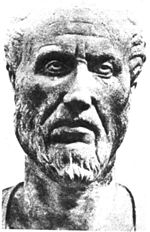I write this article by putting together a bunch of ideas gathered from reading Hume's work "A Treatise of Human Nature." I look to post this article in an incomplete form, as my readings of Hume are potentially progressive.
Hume seeks to explain our understanding of the world rather than try to justify our beliefs or prove anything.(1)
Hume attempts to distinguish between vice and virtue, arguing that such moral distinctions are in fact impressions rather than ideas. He then describes how to distinguish these impressions from other common impressions, such as sounds and colors. First, the impression of vice is pain, while that of virtue is pleasure. (1)
"It must be established as an undoubted maxim, that no action can be virtuous or morally goood, unless there be in human nature some motive to produce it, distinct from the sense itself." - Suggestive of an innate moral nature.
He asks, " Whether moral distinction can be founded on natural and original principles, or do they arise from interest and education?"
Hume thought, that "nature fitted us to produce emotion." There is, as he says, "an original quality" that is the "passions". The passions are considered to be, "Primary impulses." Without which, they "could never exert themselves." He thought of passions as a "guide" to the will. "Power" is to "convert power into action, by exertion of the will (i.e. passions and reason)."
What are the passions? "All morality is founded on pain and pleasure." All pain and pleasure has its objects. These are the self, others, and objects of the world. Action is either "Virtuous or vicious." "Vice and virtue" are, "Blamable or praiseworthy." In other words, pain and pleasure are related to the self in its blame and praise of character.
"Passions are connected with their objects and with one another; no less than external bodies are connected together. The same relation, of cause and effect which belongs to one, must be common to all." This gives us a universality of cause and effect, being such, as it were in mind, body, and world.
"Though ... external advantages be in themselves widely distant from thought or a person they considerably influence even a passion, which was directed to that as its ultimate object."
There is a distinction made between, "the transition of ideas," and "the transition of affections."
Since the objects of experience become impressions, so too must the objects give rise to emotion, or emotion must be associated with their objects. He called this, ""Actuated emotion." Objects where a "production of the ends of emotions."
"Like other philosophers, Hume distinguishes between dependent sensory perceptions and independent external objects… . This is the theory of the 'double existence of perceptions and objects' adopted by philosophers". (2)
Some other interesting Humean psychological ideas:
"Actions of the mind". As in "thinking," or "cognition," or the "succession of ideas or affections."
Memory as, "Preserving the idea."
Time as, "The idea of duration is always derived from the succession of changeable objects."
Hume also noted, as precursor to Behaviorism, "For after a frequent repetition, I find hat upon the appearance of one of the objects the mind is determined by custom to consider its usual attendent."
References:
1. https://www.sparknotes.com/philosophy/hume/section3/
2. https://ndpr.nd.edu/news/hume-s-a-treatise-of-human-nature-an-introduction/


